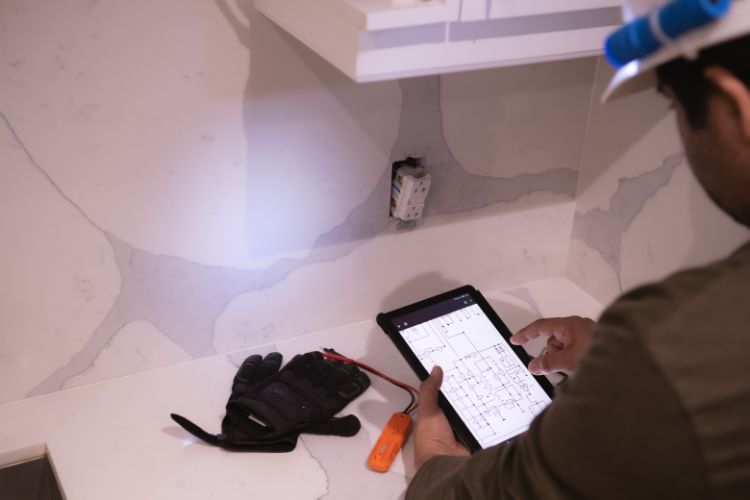What Makes a Home Inspector Qualified?
In addition to using the latest technology, a qualified home inspector should have proper licensing and certifications. In Florida, inspectors must be licensed by the state, which ensures they’ve met specific education and training requirements. Certifications from professional organizations like the American Society of Home Inspectors (ASHI) or the International Association of Certified Home Inspectors (InterNACHI) are also important. These credentials show that the inspector is committed to ongoing education and adheres to high ethical standards.
Home inspections have come a long way thanks to modern technology. These advancements not only help inspectors do their jobs more efficiently but also give homeowners and buyers a clearer picture of a property’s condition. If you’re curious about the latest tech in home inspections and what makes a qualified inspector, this guide will fill you in on everything you need to know.
1. Drones for Roof Inspections
Inspecting a roof used to mean climbing ladders and walking on potentially unsafe surfaces, but drones have changed the game. Drones equipped with high-resolution cameras allow inspectors to capture detailed images and videos of the roof from above, spotting issues like missing shingles, leaks, or structural damage. This technology is especially useful in Miami, where roofs are often affected by hurricane-force winds and heavy rain.
2. Infrared Cameras for Detecting Hidden Problems
Infrared or thermal imaging cameras are another powerful tool in modern home inspections. These cameras can detect temperature differences in walls, ceilings, and floors, revealing hidden issues like water leaks, electrical hotspots, or insufficient insulation. In Miami’s humid climate, where mold and moisture problems are common, thermal imaging is invaluable for finding problems that might not be visible to the naked eye.
3. Moisture Meters for Detecting Water Damage
Water damage is a major concern in Miami, and moisture meters help inspectors identify areas with excess moisture that could lead to mold growth or structural damage. These handheld devices measure the moisture content in various materials, like wood or drywall, to determine if there’s a hidden water issue. Using moisture meters, inspectors can pinpoint the exact location of a problem, even if it’s behind walls or under flooring.
4. Smart Inspection Software for Detailed Reporting
Modern home inspectors use advanced software to generate detailed, easy-to-read reports for their clients. These programs allow inspectors to include photos, videos, and clear explanations of any issues found during the inspection. Some software even offers mobile apps, making it easier for inspectors to create reports on-site and share them instantly with homeowners or buyers. This transparency helps clients make informed decisions quickly, which is crucial in a fast-paced market like Miami.
5. Mobile Apps and Online Scheduling for Convenience
Qualified home inspectors understand the importance of convenience for their clients. Many now offer mobile apps or online scheduling tools that make it easy to book an inspection at a time that works for you. These platforms often include features like appointment reminders, payment processing, and access to inspection reports, streamlining the entire process. In a busy city like Miami, where time is of the essence, these tools are a big plus.
Modern technology has revolutionized the home inspection process, making it more efficient and thorough than ever before. Tools like drones, infrared cameras, moisture meters, and smart software allow inspectors to uncover hidden issues and provide detailed reports to clients. When combined with the expertise of a qualified, certified inspector, these technologies ensure that you get a complete picture of a property’s condition. Whether you’re buying or selling a home in Miami, working with a tech-savvy and qualified inspector is key to a smooth and informed transaction.






